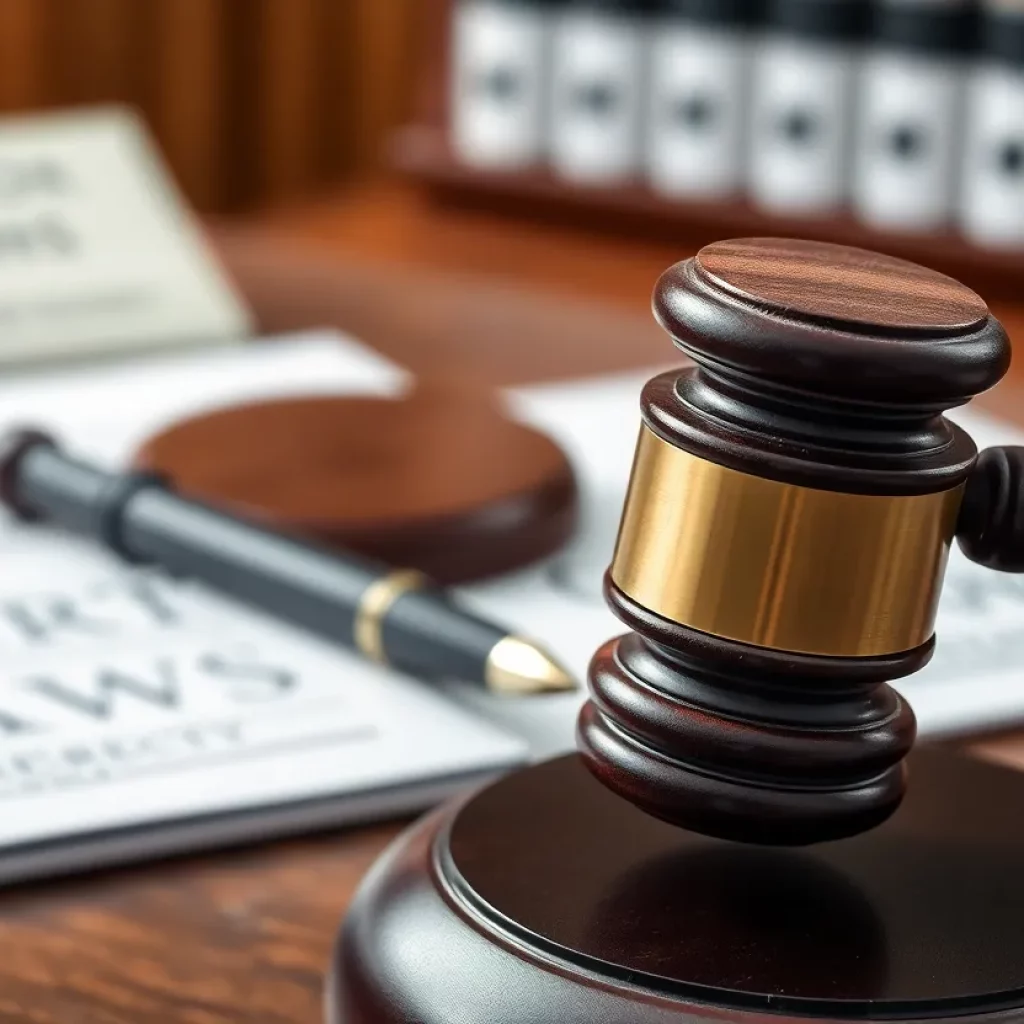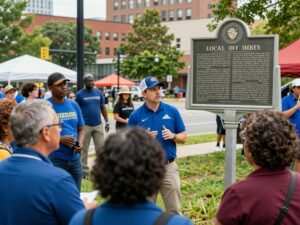News Summary
The 4th U.S. Circuit Court of Appeals has upheld Kaiser Gypsum Company’s Chapter 11 reorganization plan, signaling a promising future for asbestos-related bankruptcy claims. The court recognized that the plan had unanimous support from claimants and met legal standards, despite objections from Truck Insurance Exchange regarding good faith and potential fraud. This ruling may influence future restructuring efforts in the industry.
The 4th Circuit Supports Asbestos Manufacturer’s Chapter 11 Reorganization
In a significant ruling that could shape the future of bankruptcy proceedings for asbestos-related claims, the 4th U.S. Circuit Court of Appeals has confirmed the validity of a Chapter 11 reorganization plan proposed by the Kaiser Gypsum Company Inc. and other associated debtors. This decision reinstates confidence in restructuring efforts for companies grappling with large-scale liabilities, as the court found that the plan was not only in good faith but also met the requisite legal standards under bankruptcy law.
Unanimous Support and Deft Negotiations
The appellate court’s opinion emphasized that the reorganization plan enjoyed unanimous support from all claimants and pertinent parties, a crucial factor that underscored the legitimacy of the debtors’ intentions. As articulated by the presiding judges, the plan emerged after extensive negotiations among stakeholders, aimed at maximizing available assets to fulfill claims. This multifaceted approach mitigated risks for affected claimants, marking a rigorous defense against potential objections.
Challenges from Truck Insurance Exchange
Challenges did arise, notably from Truck Insurance Exchange, which objected on multiple fronts. The insurer argued that the reorganization plan failed to meet the good faith requirement as outlined in 11 U.S.C. § 1129(a)(3). However, the 4th Circuit rejected these objections, stating that the concept of good faith—while not explicitly defined in statutes—has been interpreted in other jurisdictions as aligning with the underlying objectives of the Bankruptcy Code. The court underscored that assessments of good faith must consider the totality of circumstances involved in each case.
Responding to Allegations
Among other points, Truck Insurance Exchange contended that the plan raised potential fraud risks and failed to adequately differentiate between insured and uninsured claims. Nonetheless, the appellate panel maintained that efforts to maximize all relevant assets in the face of overwhelming liabilities do not, by default, indicate bad faith. The court recognized that the debtors’ reluctance to integrate anti-fraud measures stemmed from practical considerations rather than ill intent.
Addressing Speculative Claims
The judges concluded that assertions regarding possible fraud were largely speculative and unsupported by tangible evidence. The plan’s establishment of a Trust that effectively absorbs the debtors’ liabilities for asbestos claims was duly acknowledged. Notably, this Trust was funded in compliance with the requirements set forth in the critical 11 U.S.C. § 524(g), which governs the establishment of such structures for handling asbestos liabilities.
Funding Assurance and Risk Considerations
Further bolstering its legality, the Trust was also underpinned by a $1 million note, which introduced significant future payment obligations, thereby satisfying statutory requirements. The panel reiterated the importance of understanding the implications of uninsured punitive damages on the claimants’ ability to collect, a point previously addressed by the lower district court. The seasoned judges followed the line of reasoning established in earlier findings, thereby affirming the comprehensive nature of the reorganization plan.
Future Proceedings and Beyond
As the legal landscape continues to evolve, the implications of this case may impact how similar reorganization efforts are viewed in the future. The U.S. Supreme Court had previously overturned a ruling pertaining to Truck Insurance Exchange’s status as a party in interest, remanding the case for further proceedings and highlighting the ongoing complexities of bankruptcy law. Different legal matters also unfolded in recent federal rulings, including a determination regarding a former employee’s capacity to sue the Danville Redevelopment & Housing Authority and motions related to evidence suppression.
As the Virginia Court of Appeals reaffirms its judicial authority through various rulings, practitioners and stakeholders alike will be closely monitoring these developments. The legal community remains adept at navigating the currents of bankruptcy proceedings, particularly in challenging sectors like asbestos manufacturing.
Deeper Dive: News & Info About This Topic
HERE Resources
Lawyers Concerned as Asbestos Trusts Plan Document Destruction
Libby, Montana’s CARD Clinic Faces Closure Amid Legal Strife
Libby’s Asbestos Clinic Closure Sends Shockwaves Through Community
Closure of CARD Clinic Raises Health Concerns in Libby
Johnson & Johnson Talcum Powder Legal Battles: A Lawyer’s Perspective
Johnson & Johnson’s Legal Tensions with Mesothelioma Lawyer Escalate
Lawyer Investigates Terminal Cancer Linked to Asbestos Exposure
Financial Outlook for Mesothelioma Victims: Insights from Lawyers
Bestwall LLC’s Bankruptcy Appeal Challenges Legal Norms
Johnson & Johnson’s Baby Powder Faces Legal Scrutiny
Additional Resources
- Virginia Lawyers Weekly: Debtors’ Reorganization Plan Affirmed in Asbestos Litigation
- Virginia Lawyers Weekly: 4th Circuit Upholds Denial of Motion to Suppress Evidence
- Virginia Lawyers Weekly: Virginia Court of Appeals Rules State Police Lacked Standing to Vacate Expungement
- Virginia Lawyers Weekly: Governments Embrace Restrictions on Noncompete Agreements
- Virginia Lawyers Weekly: 4th Circuit Affirms $3.8M Legal Fee Award in Lease Dispute
Author: STAFF HERE CHARLESTON
The CHARLESTON STAFF WRITER represents the experienced team at HEREcharleston.com, your go-to source for actionable local news and information in Charleston, Charleston County, and beyond. Specializing in "news you can use," we cover essential topics like product reviews for personal and business needs, local business directories, politics, real estate trends, neighborhood insights, and state news affecting the area—with deep expertise drawn from years of dedicated reporting and strong community input, including local press releases and business updates. We deliver top reporting on high-value events such as the Spoleto Festival USA, Charleston Wine + Food Festival, and the MOJA Festival. Our coverage extends to key organizations like the Charleston Metro Chamber of Commerce and the Charleston Museum, plus leading businesses in tourism and maritime industries that power the local economy such as South Carolina Ports Authority and the Charleston Visitor Center. As part of the broader HERE network, including HEREaiken.com, HEREbeaufort.com, HEREchapin.com, HEREcharleston.com, HEREclinton.com, HEREcolumbia.com, HEREgeorgetown.com, HEREgreenwood.com, HEREgreenville.com, HEREhiltonhead.com, HEREirmo.com, HEREmyrtlebeach.com, HEREnewberry.com, HERErockhill.com, HEREspartanburg.com, HEREaustin.com, HEREcollegestation.com, HEREdallas.com, HEREhouston.com, and HEREsanantonio.com, we provide comprehensive, credible insights into South Carolina's dynamic landscape.










